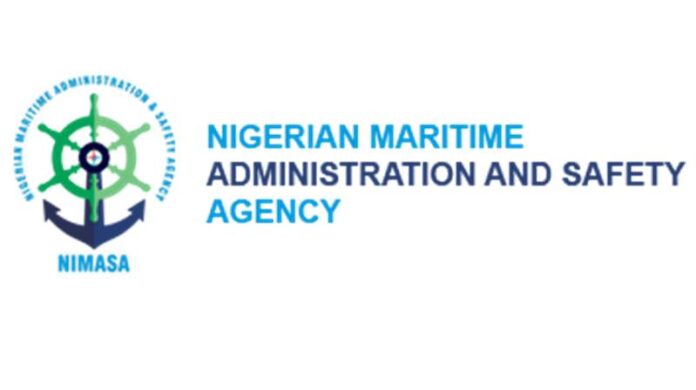By Moses Uwagbale
The management of the Nigerian Maritime Administration and Safety Agency (NIMASA) has directed all duly registered stevedoring companies with operational areas allotted by the Nigerian Ports Authority (NPA) to begin operations.
The directive is contained in a marine notice issued by NIMASA, in which the agency urged the affected companies to report to any encumbrances to it.
Mr Philip Kyanet, Head, Corporate Communications, NIMASA, gave an insight into the notice in a statement in Lagos on Wednesday.
According to him, it is in line with the Stevedoring Regulation, 2014, gazetted by the Federal Government of Nigeria, developed pursuant to the NIMASA Act, 2007.
“The agency equally notified all operators of ports, jetties, onshore or offshore oil and gas or bonded terminals, Inland Container Depots (ICDs), offshore dock terminals, dry ports and platforms, and other work locations to grant duly appointed stevedoring companies access to their premises for commencement of operations.
“It said only corporate bodies duly registered in Nigeria will be allowed to employ dock labour or engage in stevedoring work on board or from ships.
“Such corporate entities must have satisfied the requirements for registration specified in the Stevedoring Regulation, 2014, and obtained a Stevedoring license from NIMASA.
“Every dock labour employer or stevedoring company shall provide proper and safe working conditions for the convenience and proper working of its employees and ensure that all stevedoring plants and equipment supplied and being used in their operations are safe and in good condition,”he said.
Kyanet said that employers of dock labour or stevedoring companies were mandated to provide adequate insurance cover for health and personal injury.
Others areas are loss of earnings, and compensation, relating to any incident affecting dockworkers or stevedores in the course of the work of the dock labour employer or the stevedoring company.
The Director-General of NIMASA, Dr Bashir Jamoh, warned that the consequences for non-compliance with the guidelines set out in the Stevedoring Regulation, 2014, shall be enforced.
He said that this was in addition to other penalties, such as detention of vessels, sealing of operational area or work location and prosecution.




